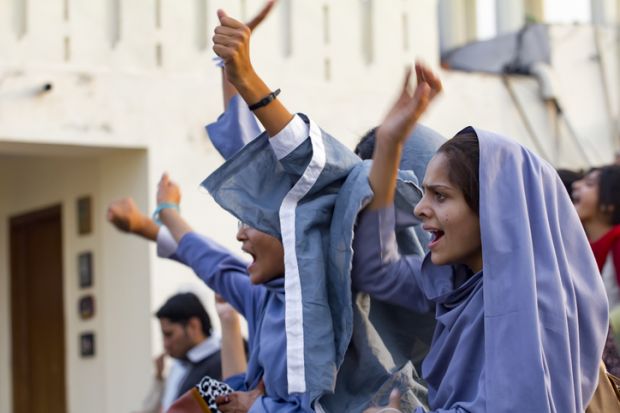Increasing polarisation across many countries is having a “direct impact” on the academic freedom and autonomy of universities, higher education leaders have warned.
Speaking at Times Higher Education’s Asia Universities Summit, Komiljon Karimov, rector of Westminster International University in Tashkent (WIUT), said that governments needed to find a balance between “regulatory control” and freedom of academic expression.
He added that, in the face of societal divisions, there should be “certain principles of freedom that will not be affected by changing political agendas”, such as intellectual exploration, innovation and creativity, diversity and inclusion, quality of education and international collaborations.
“What we can see now across the world, not necessarily in my own country, but what we see across the world [is] more polarised societies [and] the rise of censorship in certain parts of the world. Obviously, this will also have a direct impact on universities as part of those societies,” Dr Karimov said.
Pankaj Mittal, secretary general of the Association of Indian Universities, outlined the Indian government’s approach to university autonomy, noting that some universities in the country had felt “suffocated” by over-regulation.
The country’s National Education Policy, introduced in 2020, set out plans to shift towards “light but tight” control.
Now Indian universities are granted varying levels of autonomy based on scores given by the national accreditation body. The category an institution falls into determines whether it can design courses, hire foreign faculty and admit international students, among other things.
But Dr Karimov, who was formerly Uzbekistan’s deputy minister of higher education, science and innovation, said that, although he understood the government’s perspective, he believed that categorising universities in this way could “limit the journey to excellence, because there is a very direct correlation between academic autonomy and the performance of universities”.
“If we limit the universities in the autonomy [tier], it means we will also limit the journey to excellence, so they may never actually be in the top tier if we [use] that approach,” he said.
However, Colin Riordan, secretary-general of the Association of Commonwealth Universities, said that autonomy “comes with responsibilities” and a level of regulation was important to ensure students were protected.
“There’s such a large amount of evidence to show that successful universities are more autonomous,” he said. “However, how do we get there? I’m not absolutely sure that saying complete autonomy from day one is always going to work.”
University leaders, he went on, “have a huge responsibility to defend academic freedom”.
“The tone, as far as universities are concerned, does absolutely come from the vice-chancellor,” said Professor Riordan, a former vice-chancellor of Cardiff University. But he acknowledged it was not always that simple, particularly when issues of national security were involved.
Speakers also discussed the link between academic freedom and the right of students to protest, reflecting on the demonstrations that have taken over US campuses in recent weeks.
“I don’t think anybody disagrees with the fact that students and faculty should be permitted, of course, to express their views, in very strong terms if they want,” said Professor Riordan. “The issue is what lengths you’re prepared to put up with as a university leader if it involves huge disruption on your campus”.
Dr Karimov added that it was a “critical” role of universities to teach students how to debate agreeably and be “responsible members of society”, including by helping them develop the soft skills needed to “ask appropriate questions and find appropriate answers” by themselves.
The THE event was held in Kuala Lumpur, in partnership with Sunway University.




